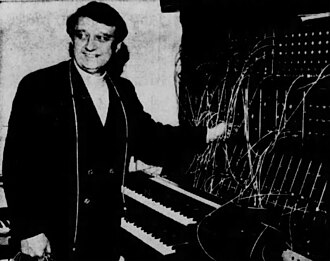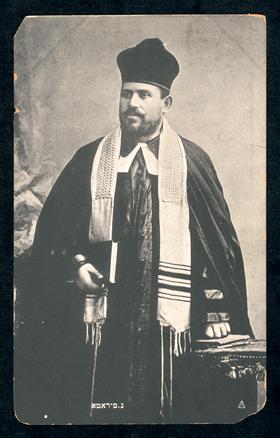Discover Your Roots
SIGN UPDiscover Your Roots
SIGN UPGershon is a male name of Hebrew origin, meaning "Exile." In the Torah, Gershon was the eldest son of Levi and the patriarchal founder of the Gershonites, a division among the Levites. The Gershonites were responsible for the care of the outer tabernacle, including its components. The name is often considered synonymous with "Gershom," which may mean "a sojourner there." The Torah lists Gershon's sons as Libni and Shimei. Some biblical scholars believe that the genealogy of Levi's descendants reflects the existence of four distinct groups among the Levites. The family tree of Gershon is uncertain, with differing accounts in different versions of the Torah. Overall, the name Gershon carries the significance of exile and has historical and religious significance in Hebrew culture.

Gershon Kingsley (1922–2019) was a German-American composer and electronic music pioneer, known for his influential work with the Moog synthesizer and as part of the duo Perrey and Kingsley. His most famous composition, "Popcorn," became a significant electronic instrumental piece. Kingsley's versatile career spanned composing for Broadway musicals, film, television, and commercials, showcasing his eclectic style blending avant-garde and pop influences. Additionally, he composed classical chamber works and an opera, Raoul, premiered in Bremen, Germany in 2008. Kingsley's contributions were recognized with a Tony Award nomination, two Clio Awards, and a Lifetime Achievement Award from the Bob Moog Foundation. His early life was marked by fleeing Nazi Germany and pursuing a musical career in Palestine before eventually immigrating to the United States. Kingsley's solo and collaborative projects, like the First Moog Quartet, showcased the innovative capabilities of electronic music, solidifying his legacy as a trailblazer in the genre. He passed away in 2019 at the age of 97 in Manhattan, New York.

Gershon-Yitskhok Leibovich Sirota, also known as the "Jewish Caruso," was a prominent figure in the "Golden Age of Hazzanut" (cantorial music) in Europe. Born in 1874, Sirota began his cantorial career in Odessa and later gained recognition as the cantor of the Shtatshul in Vilna. His collaboration with choirmaster Leo Lowe marked the beginning of a successful partnership that spanned his career. Sirota's performances took him across Europe, including a notable appearance at Carnegie Hall in New York City. He was also known for his recordings, which became widely popular across the Jewish world. Despite disputes leading to his departure from the Tłomackie Street Synagogue in Warsaw, he continued to live in the city, where he also tragically met his fate during the Warsaw Ghetto Uprising in 1943. Sirota's rich tenor voice and frequent performances captivated both Jewish and non-Jewish audiences, leaving a lasting legacy in the world of cantorial music.



All images displayed on this page are sourced from Wikipedia or Wikimedia Commons.We use these images under their respective Creative Commons or public domain licenses. Wherever applicable, author attributions and license information are provided. If you believe an image is used incorrectly or outside its license terms, please contact us so that we can review and correct the issue.